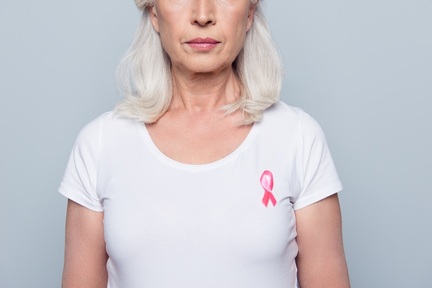'Greater awareness' needed to prevent age discrimination in breast cancer care
Despite age discrimination in health and social care services being banned in the UK since 2012, a new report from the International Longevity Centre UK (ILC) has suggested attitudes “ both on the part of older people themselves and on that of clinicians, may impact rates of diagnosis and the treatment that people with breast cancer receive.”

The report highlights how older people are less aware of the risks and signs of breast cancer mainly because routine breast cancer screenings stop as 70 and many older women, therefore, think they are less at risk from the disease.
These findings arrive on the same day as the first study into the links between ageism and the health and wellbeing of older people.
‘There can be no room for complacency’
Adults aged 80 and above are more likely to receive a late diagnosis (23 per cent) than those aged 60-79 (15 per cent) according to the ILC report.
In addition to this, older people are less aware of the risks and signs of breast cancer.
One in five women over 70 report to never self-check for symptoms, potentially due to the confusing signals sent by the fact that women over 70-years-of-age are no longer called for routine screening.
The ILC are calling for greater awareness surrounding age inequalities in breast cancer care and treatment.
Kate Jopling, Director of Programmes at ILC said: “The NHS has made good progress in improving breast cancer outcomes and in taking steps to address age inequalities. However, there can be no room for complacency.”
“Addressing gaps in the collection and sharing of data for research, service provision and service improvements will be vital to the effective assessment of whether older people with breast cancer receive equal treatment.”
‘There is no place for ageism in the NHS’
This new evidence on ageism and breast cancer care arrives on the same day as a study by University College London (UCL), published in the Lancet, where 7,700 participants aged 50 or older were interviewed about ageism to discover its effect on their health. The study uses data from the English Longitudinal Study of Ageing.
This is the first study to examine the association between ageism and poor health, with 25 per cent of over 50-year olds saying they had experienced age discrimination.
Those who reported age discrimination were more likely to rate their health as ‘fair’ or ‘poor’ (29 per cent) compared to those who had not (24 per cent).
The lead author of the report, UCL’s Dr Sarah Jackson, said: “As a society, we need to increase public awareness of what constitutes ageism and how it can affect health and wellbeing so we can build collective movements, like those that brought about legislative and social change for other forms of discrimination.
"On a clinical level, raising the issue of age discrimination with older patients could help to identify those at risk of future health problems.”
Certain serious health problems were more common in the study among those who reported age discrimination compared to those who had not – including heart disease (17 per cent versus 13 per cent), chronic lung conditions (seven per cent versus five per cent), limiting longstanding illnesses (39 per cent versus 33 per cent), and depressive symptoms (19 per cent versus 12 per cent).
George McNamara, Director of Policy and Influencing at Independent Age, added: “There is no place for ageism in the NHS. The impact of ageism on the health and well-being of older people cannot be underestimated. It is very concerning that access and the quality of health and care received seems to be dependent on age.
“As a society, our failure to ensure fairness and equal rights to protect those at risk of age discrimination runs the risk of older people being treated like second-class citizens. Government must do more and introduce an “age friendly” test to all legislation and programmes, as well as having a champion for older people within government.”
Raising issue of age discrimination ‘helps to identify those at risk’
A lack of data on potential age discrimination is also an issue. Less than a third of English hospital trusts collects data in full on patients with secondary breast cancer - particularly common in older people.
The current data collection programme, NABCOP, is due to come to an end in 2019 and there is concern that data collection around age inequalities will only get worse.
Professor Martin Gulliford of King’s College London, said: “The public health community has been slow to acknowledge the central role of discrimination in health inequality.
"Although the interrelationships between age, socioeconomic status, health status and experienced discrimination are complex, these findings suggest that not only does age discrimination cause short-term psychological distress to older people, but could also have an important effect on their long-term mental and physical health."
Latest News
 29-Jul-24
Dementia Bus gives carehome.co.uk staff insight into life with dementia
29-Jul-24
Dementia Bus gives carehome.co.uk staff insight into life with dementia
 27-Jul-23
UK's top home care agencies in 2023 revealed
27-Jul-23
UK's top home care agencies in 2023 revealed
 30-Nov-22
A quarter of older people keep their falls secret from family
30-Nov-22
A quarter of older people keep their falls secret from family
 29-Nov-22
'Covid-19 has not gone away' say terminally ill
29-Nov-22
'Covid-19 has not gone away' say terminally ill
 28-Nov-22
IT consultant who received poor care opens 'compassionate' home care business
28-Nov-22
IT consultant who received poor care opens 'compassionate' home care business